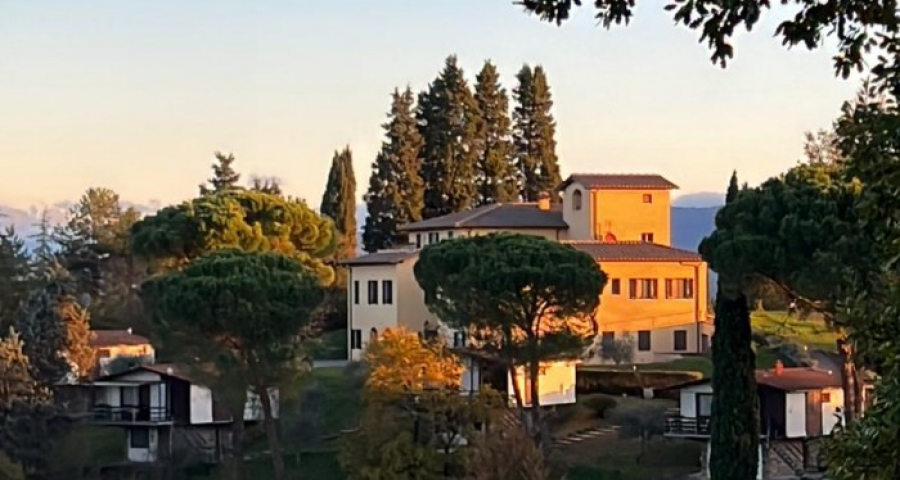Editorial – The religion of consumerism and new cults
by Luigino Bruni
published in Avvenire on 24/11/2023
Black Friday has become the beginning of the liturgical year of the capitalist religion. Like any new religion that intends to supplant a pre-existing one, consumer capitalism also replaces Christian holidays with its new ones and superimposes its liturgical times on the previous ones. When one religion takes over from another, it does not change the ancient rhythm of sacred time, but simply occupies it and changes its meaning. It is interesting that Black Friday follows Thanksgiving, one of the religious holidays of the first pilgrims..
And so, after having long since returned Christmas to its first nature as a pagan festival (the ‘sol invinctus’ of the Romans), and after having turned the ancestral festivals of the dead into profit with Halloween, consumerism has introduced its advent.
It is this substitution of holidays that effectively shows that we have entered the post-Christian era. As the great Russian philosopher and theologian Pavel Florensky reminded us in the autumn of 1921: "The starting point of culture is worship because the original reality, in religion, is not dogmas or even myths, but worship, that is, a concrete reality". No religion becomes culture without worship and consumerism has become religion because our world is immersed in the worship of consumption. Just as in the Middle Ages, Christianity became culture because the Christian religion entered into every action and gesture of people's lives (bells, prayers, calendars, holidays, times measured in Hail Marys, words, narratives...), today the economy has become universal culture thanks to its worship and daily cults (buying, selling, advertising, measuring, language, narrative and storytelling of companies).
At the same time as Florensky was giving his philosophy lessons at the Moscow Theological Academy, the Jewish philosopher Walter Benjamin wrote his notes on Capitalism as a religion, one of the most prophetic pages of the twentieth century: "capitalism is a purely cultic religion, perhaps the most extreme that ever existed. In capitalism, things have no meaning only in their relationship to the cult; capitalism has no specific body of dogma, no theology" . A religion of mere praxis, of worship alone, without metaphysics: "God’s transcendence is at an end. … This passage of the planet “Human” through the house of despair in the absolute loneliness of his trajectory is the ethos that Nietzsche defined. This man is the superman, the first to recognize the religion of capitalism and begin to bring it to fulfilment" . Therefore, for Benjamin, "The Christianity of the Reformation age did not favour the growth of capitalism, instead it transformed itself into capitalism" . And the question becomes: who is the superman of capitalism; that superman capable of living in a world where the (Jewish-Christian) God is dead because "we have killed him" (La Gaia Scienza)?
After Max Weber's analyses, we thought that the great hero of capitalism (Protestant-Calvinist), its superman, was the entrepreneur, a protagonist not very different from Marx's capitalist and Saint-Simon's industrialist. For Benjamin, however, this is not the case, or at least it is no longer the case. The hero of the first season of nineteenth and twentieth century capitalism was the entrepreneur-capitalist, who, thanks to success in business, hoped to be blessed and predestined. But with the turn of the millennium, the superman of capitalism has become the consumer. Furthermore, for Benjamin, the salient feature of the new religion of pure worship is is "the permanent duration of the cult", because "Capitalism is the celebration of the cult sans reve et sans merci [without dream or mercy]. There are no “weekdays.” There is no day that is not a feast day, in the terrible sense that all its sacred pomp is unfolded before us; each day commands the utter fealty of each worshipper”. The dream of the devout consumer is a 24 hour Black Friday that lasts all year round, a world where the sacrifice (discount) is permanent - the sacrifice is offered by businesses to the consumer, reversing the original logic of traditional sacrifices, telling us that the superman-idol is not the profit of the business, nor the goods, but the consumer.
As long as capitalism had expressed itself as an ethics of business and work, it remained an elitist and class affair; it was the shift from business to consumption that transformed it into a universal (Catholic) and popular religion, which fully and deeply occupied the soul of the communal peoples of the South, those linked to the ethics of shame and ostentatious consumption, where productive rhetoric had failed to enter. Universal worship could only take place by leaving the factory and entering consumption, where blessing is obtained simply by consuming, preferably on credit, a debt-schuld from which the new capitalism has managed to eliminate the ancient sense of guilt.
Every popular religion tends to multiply its festivals, because the people like them and the priests, who make money from them, like them. In the 1740s, Antonio Ludovico Muratori launched a strong cultural and political battle to try to convince popes and bishops of the importance of reducing the holy days of obligation in the Catholic Church, which in those days had been set at thirty-six per year, in addition to Sundays. Muratori, a priest, wanted to reduce the festivals because he was convinced that their proliferation worsened the condition of the poor: "How are the poor doing?" (Letter dated 14.8.1742). The many festivals not only reduced the number of working days but also led the poor to go into debt to celebrate. Yesterday and today.
With the advance of the new consumerist cult, we can expect a new proliferation of feast days, because the consumer must be worshipped. New ones will be added to the old ones which have already been transformed. The new priests will get rich thanks to their ‘sacrifices’, and the poor will be increasingly distracted and increasingly poor.








